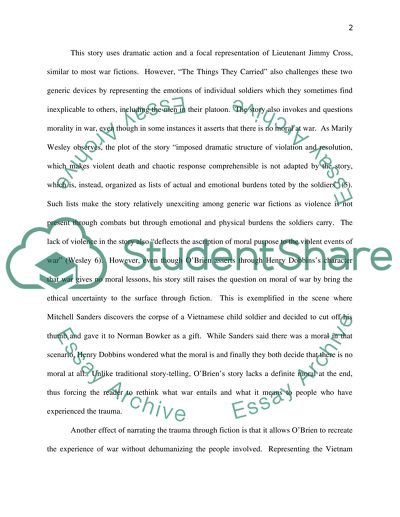Cite this document
(“The things they Carried Research Paper Example | Topics and Well Written Essays - 1500 words”, n.d.)
The things they Carried Research Paper Example | Topics and Well Written Essays - 1500 words. Retrieved from https://studentshare.org/literature/1502740-the-things-they-carried
The things they Carried Research Paper Example | Topics and Well Written Essays - 1500 words. Retrieved from https://studentshare.org/literature/1502740-the-things-they-carried
(The Things They Carried Research Paper Example | Topics and Well Written Essays - 1500 Words)
The Things They Carried Research Paper Example | Topics and Well Written Essays - 1500 Words. https://studentshare.org/literature/1502740-the-things-they-carried.
The Things They Carried Research Paper Example | Topics and Well Written Essays - 1500 Words. https://studentshare.org/literature/1502740-the-things-they-carried.
“The Things They Carried Research Paper Example | Topics and Well Written Essays - 1500 Words”, n.d. https://studentshare.org/literature/1502740-the-things-they-carried.


